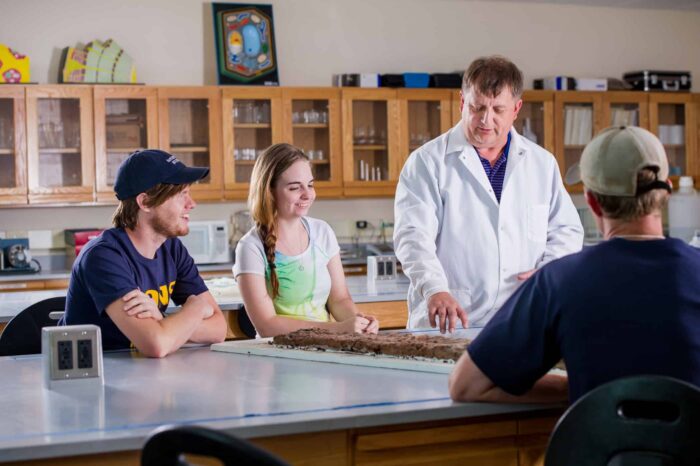School of Agriculture Now College of Agricultural Sciences and Natural Resources (CASNR)

Texas A&M University-Commerce has established the College of Agricultural Sciences and Natural Resources, advancing the department from its former designation as a school. The move recognizes the 41 percent increase in the number of students pursuing Bachelor of Science and Bachelor of Arts degrees in the last five years and the breadth of programs offered, from animal sciences to agribusiness.
“The farming and ranching industries in Texas impact the world's economy—and students interested in pursuing careers in those fields must have the skills to keep pace with emerging technological advances,” said Dr. Ray Keck, president of A&M-Commerce. “Our new College of Agricultural Sciences and Natural Resources has the leadership, facilities, instructors and degree program to prepare students for careers in traditional and emerging professions.”
Students enrolling in the College of Agricultural Sciences and Natural Resources will study under experienced faculty members and have extensive opportunities to learn hands-on in the university's facilities. The university's assets include full production farms, animal production barns, breeding labs, artificial wetlands, a native prairie restoration site, and the latest cultivators, sprayers and harvesters. The college offers courses and degree programs that prepare students in the fields of food production, animal welfare and horticulture, as well as joint programs with the Colleges of Business and Education to offer minors in Agribusiness and high school teaching certifications.
According to the college dean, Randy Harp Ph.D., the difference between attending A&M-Commerce and other agriculture schools in Texas is centered on the wealth of hands-on learning opportunities his college offers. “Our students are prepared to work in their chosen career fields because they have significant experience working in the fields, the labs and with animals and with the advanced equipment, tools and technologies that employers use today.”
Dr. Harp added, “Just one example is the fact that our farming students have the opportunity to plant and cultivate their own 10-acre plot using all the state-of-the-art equipment they would use in the real world—a unique opportunity in higher education programs—and they keep a portion of the crop proceeds once they're sold. Our students work alongside an incredible team of experienced instructors who coach them through the real-life scenarios they'll face after graduation.”
“With 11 percent of jobs in the U.S. related to agriculture, students in the agriculture and agribusiness fields have tremendous career options upon graduation,” said John Humphreys, Provost and Vice President of Academic Affairs. “Emerging areas such as sustainable farming and veterinary sciences are attracting many students interested in pursuing career paths in non-traditional areas that are on the leading edge of science and industry.”
For more information about the College of Agricultural Sciences and Natural Resources, please email [email protected] or visit https://www.tamuc.edu/academics/colleges/scienceEngineeringAgriculture/departments/agriculturalSciences


